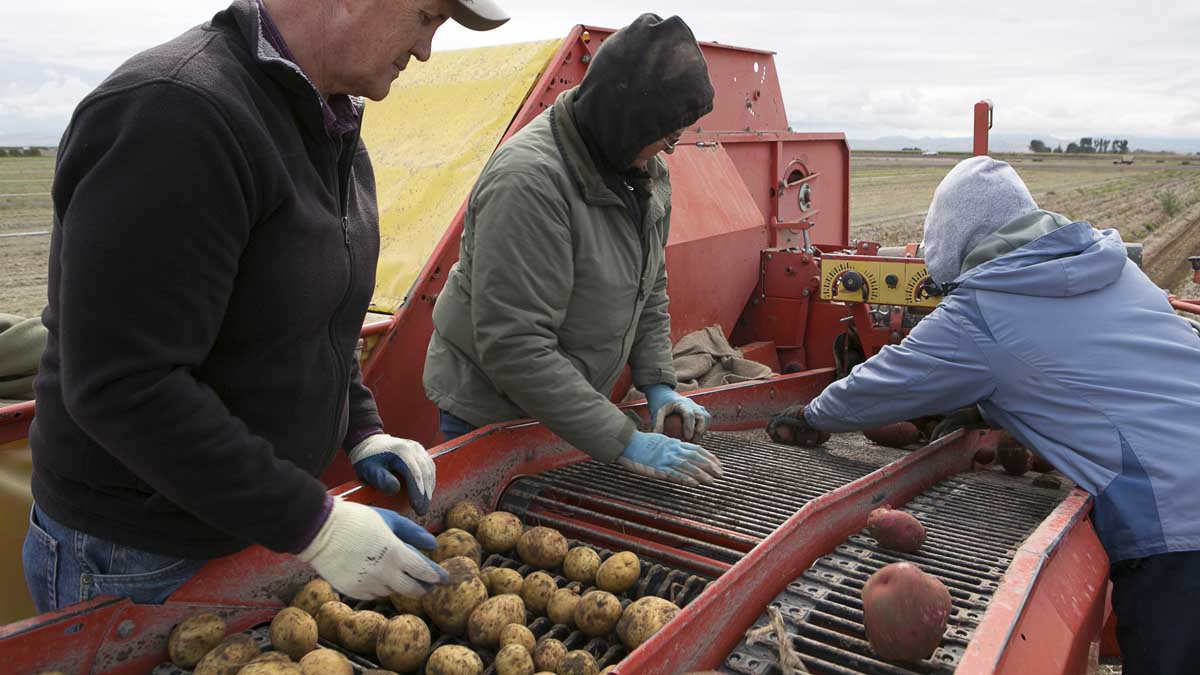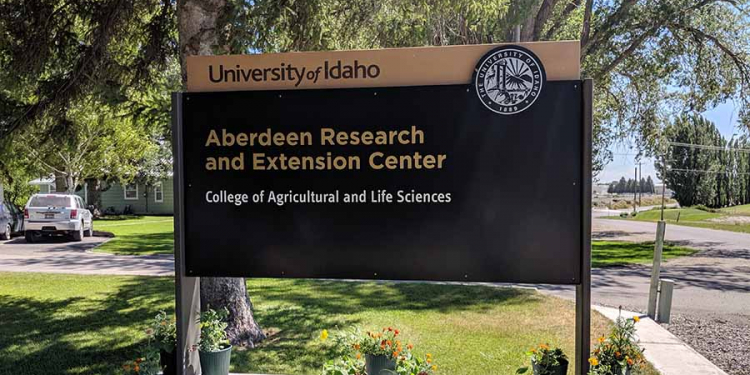Two new potato varieties, developed in part at the USDA Agricultural Research Service in Aberdeen, are about to be released through the Tri-State Potato Research and Breeding Program.

The Rainier Russet hybrid was initially developed by the Small Grains and Potato Germplasm Research center in Aberdeen. Oregon State University decided to keep and develop this cross through its program and will be the lead institution behind the release, which is expected to take place later this year.
The University of Idaho Seed Potato Germplasm Program in the College of Agricultural and Life Sciences works to establish, maintain and distribute disease free germplasm and mini-tubers for domestic and international seed potato growers and researchers.
Rich Novy, USDA-ARS potato breeder, believes that Rainier is very suitable for both the fresh market and the processing sector. It is a cross of Canela Russet and a clone of Aberdeen. Novy explains that Rainier has good saccharification resistance. This means that the sugar content does not increase significantly during refrigerated storage. Potatoes with a high sugar content have a darker baking color, which is not ideal for the processing sector.
Thanks to its attractive external quality, the variety will also be appreciated by packers of fresh potatoes, Novy expects. The variety also has a long dormancy period, which means that the potato can be stored for a long time before it starts to germinate. Novy says Rainier was assessed by partners in Idaho, Oregon and Washington, then the variety was tested in California, Colorado and Texas. He explains that certified seed potatoes are available to interested parties.

The second variety ready to be released, NDA050237B-1R, is a clone with an intense red color that was crossed in North Dakota. The Aberdeen program selected this special potato variety for further development. Novy says certified seed potatoes are available and will be released later this year or early next year.
“This variety has a nice, deep red skin,” says Novy, adding that it produces a high percentage of medium-sized potatoes, which are in high demand in this segment. This new, red-skinned potato has already attracted a lot of attention in Klamath Falls, Oregon, as well as Michigan, according to Novy. It is a medium to late variety. The varieties developed by the Tri-State Program are marketed by the Potato Variety Management Institute.
Variety Information
University of Idaho faculty work in conjunction with faculty from other institutions on the Tri-State Potato Breeding Program and Potato Variety Management Institute to develop and promote new varieties. All potato breeding selections undergo a strenuous evaluation process before being released as varieties. The process can take as many as 15 years and involves hundreds of tests. Pictured below are potato varieties created in Aberdeen by our breeders. Potato breeding and variety development occur in several areas in Idaho.
Moscow
University of Idaho’s main campus is home to the Seed Potato Germplasm program.
- Potato Tissue Culture Lab plantlets are grown and sold to seed growers
- Parker Farm minitubers are produced at the greenhouse and sold to seed growers
Aberdeen
The Aberdeen Research and Extension Center is home to the University of Idaho potato breeding program.
- Incorporates improved germplasm from other ARS and state programs
- Completes pre-breeding research
- Provides most of the true seed for variety development efforts
Tetonia
The Tetonia Research and Extension Center tests between 3,000 and 7,000 promising new potato lines from Aberdeen each year. All seed for evaluation in tri-state and western regional trials are produced at Tetonia.
For more information: idahostatejournal.com








